A Magical Meal in Macedonia
This Thanksgiving, I'm reminded of an amazing culinary experience Brent and I had three years ago.
It’s Thanksgiving in America, and I’m reminded of a meal Brent and I shared in the tiny village of Brežani in the remote mountains of North Macedonia — about an hour from where Brent and I were staying in the town of Ohrid on Lake Ohrid in September of 2022.
It wasn’t Thanksgiving, but it was autumn, and it was magical all the same.
It began one morning a few days earlier when I sat down on a bench along the lake and struck up a conversation with Mitko, a local man.
Mitko and I chatted for a bit, and before I knew it, he had invited me — and Brent, who was back at the apartment — to join them a few days later in Brežani. He and his wife, Mimoza, lived in Ohrid, but they had been slowly renovating an old, abandoned house in this remote mountain village.
So there we were, in the back of a van winding our way up a dirt road to that village.
It felt odd to trust a virtual stranger enough to do this. It seemed like a great opening scene for a horror movie titled Macedonia Cannibal Massacre.
But I had a good sense. And life is an adventure.
When we arrived at the village, it was even more remote than I expected. And smaller. And also mostly abandoned.
Nestled in the Mokra Mountains, Brežani had once been a vibrant village of 700 people, most working as farmers and shepherds.
Times had changed. It had now dwindled to fewer than two dozen permanent residents.
But Mitko and Mimoza wanted a simpler way of living, and they had decided Brežani was the place to find it.
They purchased a derelict seventy-year-old house in the village and set about restoring it. Despite years of work, the building still lacked running water, electricity, and even a functioning toilet.
(There were always the bushes, and an outhouse up the street.)
When Mitko and Mimoza came up from Ohrid, they slept in a tent. Each visit, they did a little work on the house.
They didn’t seem to be in any great rush to finish. Their renovation was mostly about the journey, not the destination.
But for today, it was time to start cooking. Everything was made from scratch.
First, they had to wash and prepare the tomatoes and peppers…
…and then roast the peppers over an open fire.
Brent and I offered to help, but we were told in no uncertain terms that, as guests, we were expected only to sip rakia and enjoy the food and company — which included other villagers who were constantly stopping by.
Except for Mitko and Mimoza, no one spoke English, but that didn’t matter. In the quiet of those Macedonian mountains, we could all still enjoy each other’s company.
While Mimoza and Mitko’s aunt did most of the cooking, Mitko did a steady stream of chores: fetching water, keeping the fire going, picking vegetables from their massive garden, and more.
Food started coming out right away. First, a tomato and onion salad, using tomatoes so fresh they burst with sweetness, offset by a dash of vinegar.
Of course, we had to have rakia with it. But be careful! This alcohol is potent stuff!
Meanwhile, inside the house, Mimoza continued to prepare the main meal.
I wanted a better look, so I snuck inside — and felt like I’d stumbled into a painting by some long-dead European master.
One table was filled with shelled white beans and pans and bowls of forest fruit Mitko and Mimoza had harvested during a stop on the way up to Brežani.
Food doesn’t come any fresher than this.
The smells were almost as good as the sights. Caramelized onions! Garlic sizzling in oil! Simmering meat!
Using only a single propane burner, Mimoza was somehow preparing a massive feast.
There was turlitava, a traditional Balkan stew cooked in an earthenware pot.
Mimoza told me this dish included pork, beef, and lamb, plus onion, peppers, potato, green beans, okra, parsley, garlic, tomato, and carrots, all simmered together for hours.
Then, there were the roasted peppers, which were seasoned with oil, vinegar, and garlic.
There was also tavče gravče, beans baked in the oven; komad, a pie with cheese and eggs; gibanica, pastry sheets stuffed with cheese, sour cream, and eggs; proja, a bread made with corn flour, leeks, and, yes, more cheese; and a simple cucumber salad.
And, of course, ajvar, the roasted red pepper dish about which Macedonians are (correctly) passionate.
Finally, the candles were lit, and dinner was served.
The dishes were some of the most flavorful I’d ever eaten. The turlitava was rich and hearty, the peppers grilled to sweet, smoky perfection, everything bursting with freshness and flavor.
Even in the finest restaurant, you couldn’t buy a meal like this.
As we finished the last of it, I looked around the table and thought, This is why we travel.
To meet people like Mitko and Mimoza. To venture to remote mountain villages and eat food that connected us directly to Brežani’s bygone days.
Soon, we’d be missing another Thanksgiving Day back in the States, but I didn’t care.
I could still be thankful — and now I had so much more to be thankful for.
Michael Jensen is a novelist and editor. For a newsletter with more of my photos, visit me at www.MichaelJensen.com.


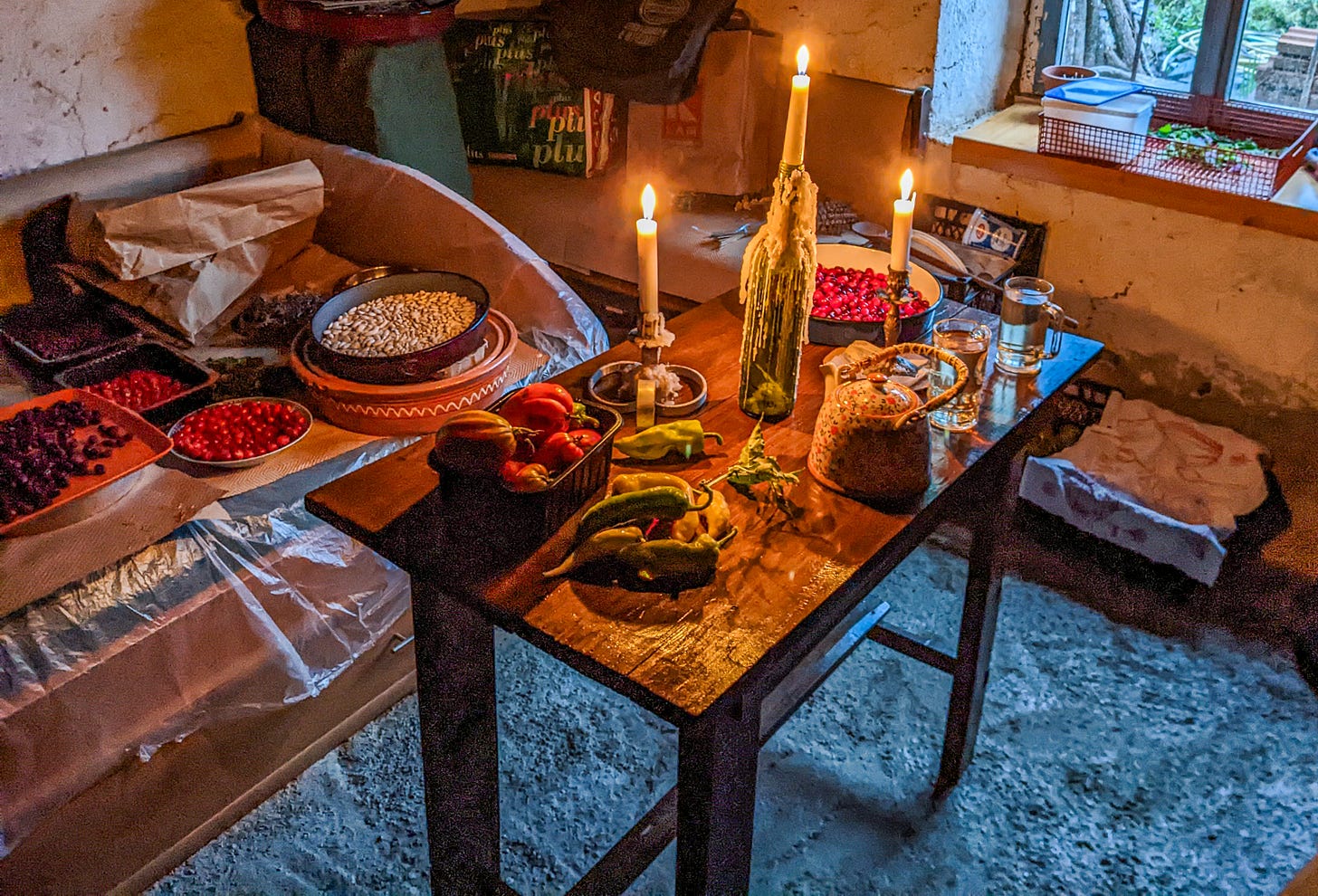
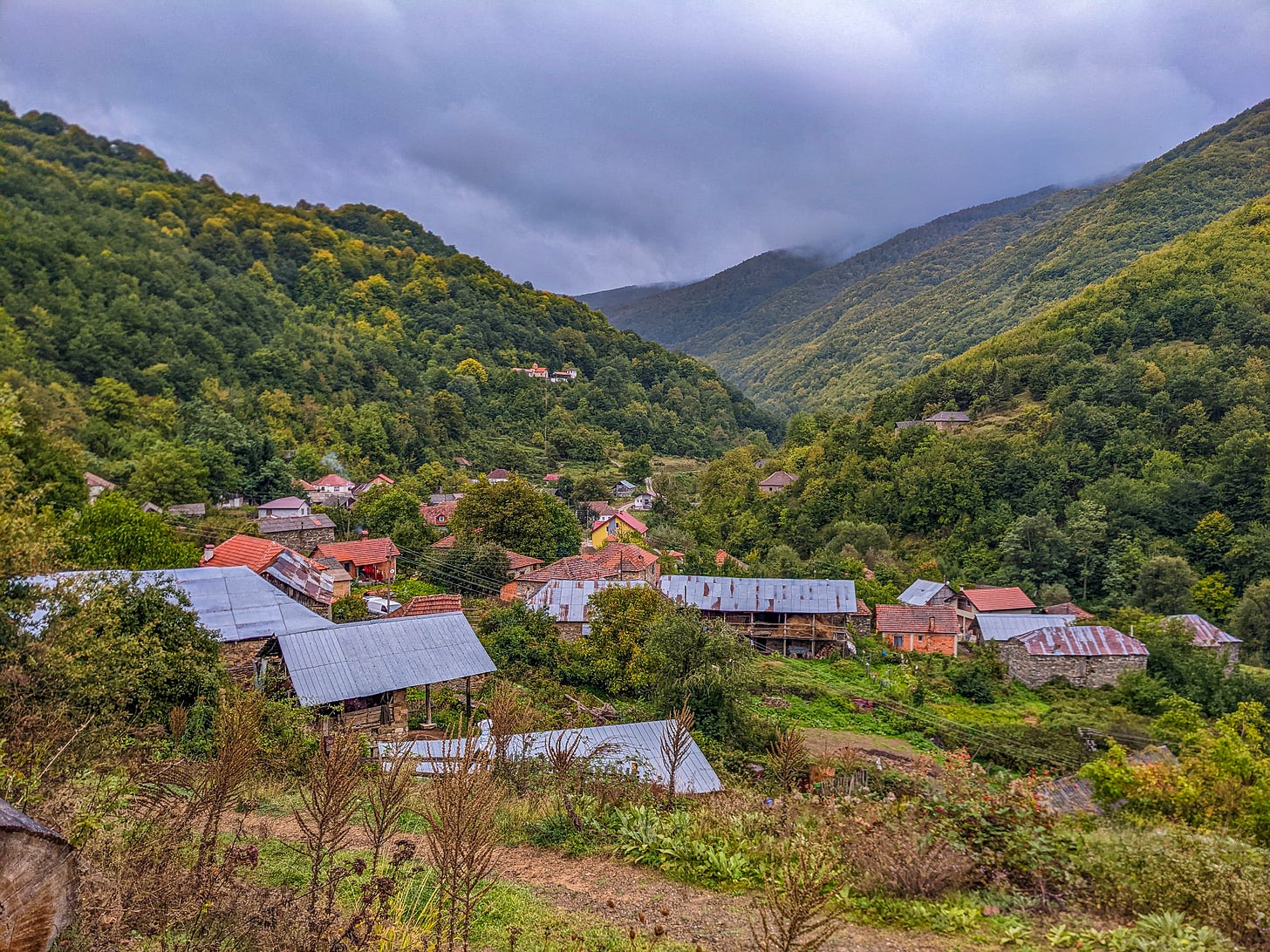
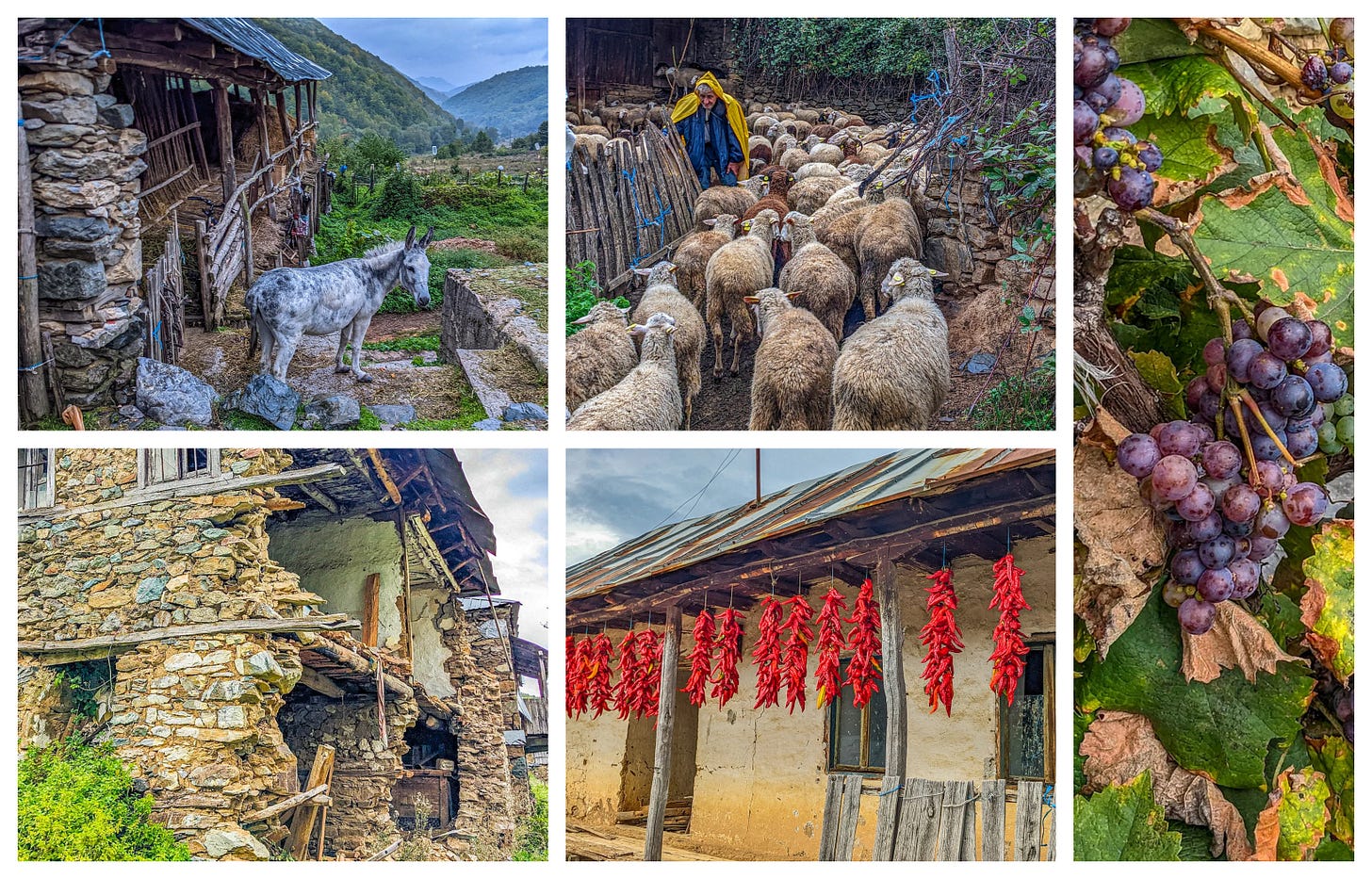

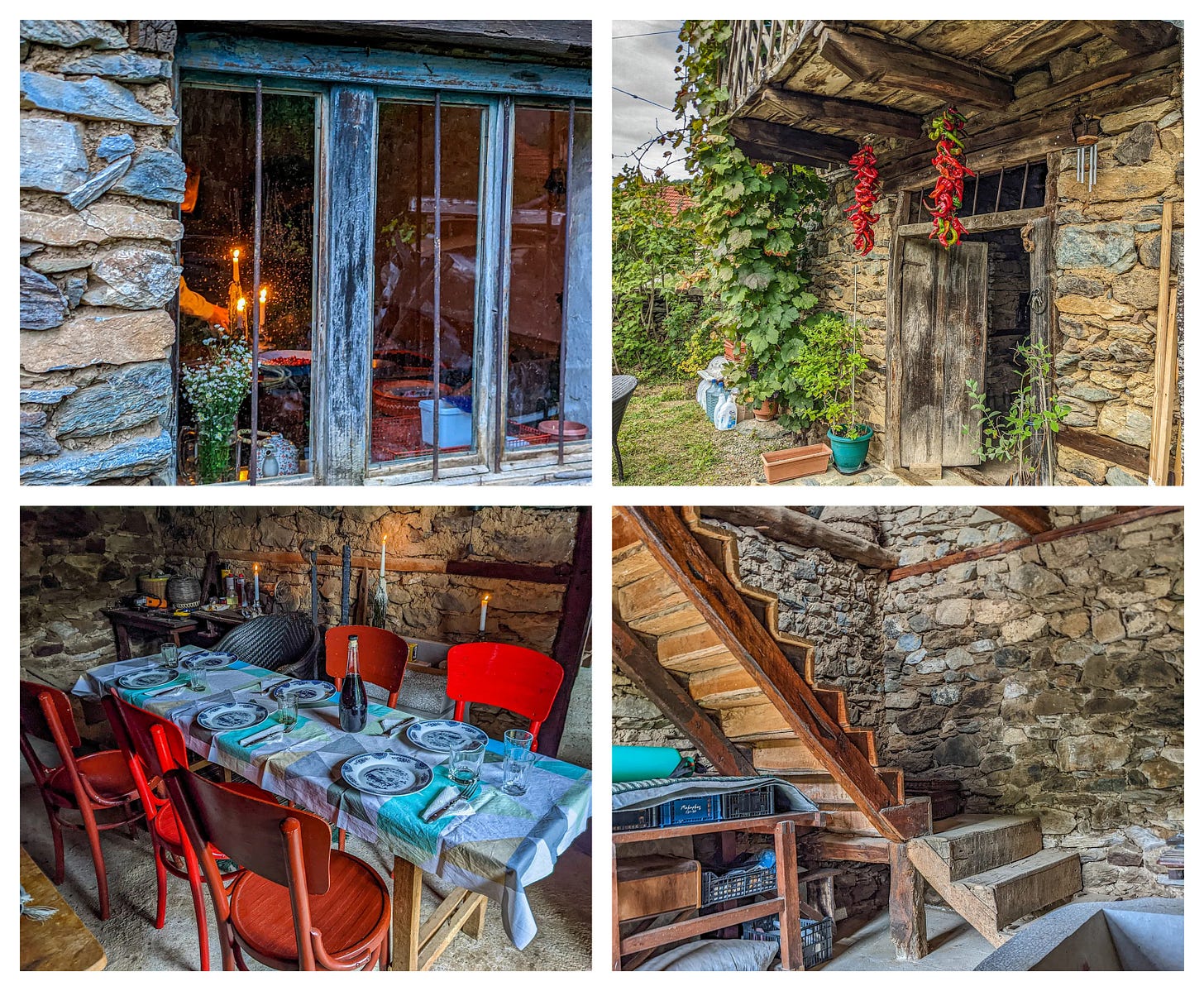
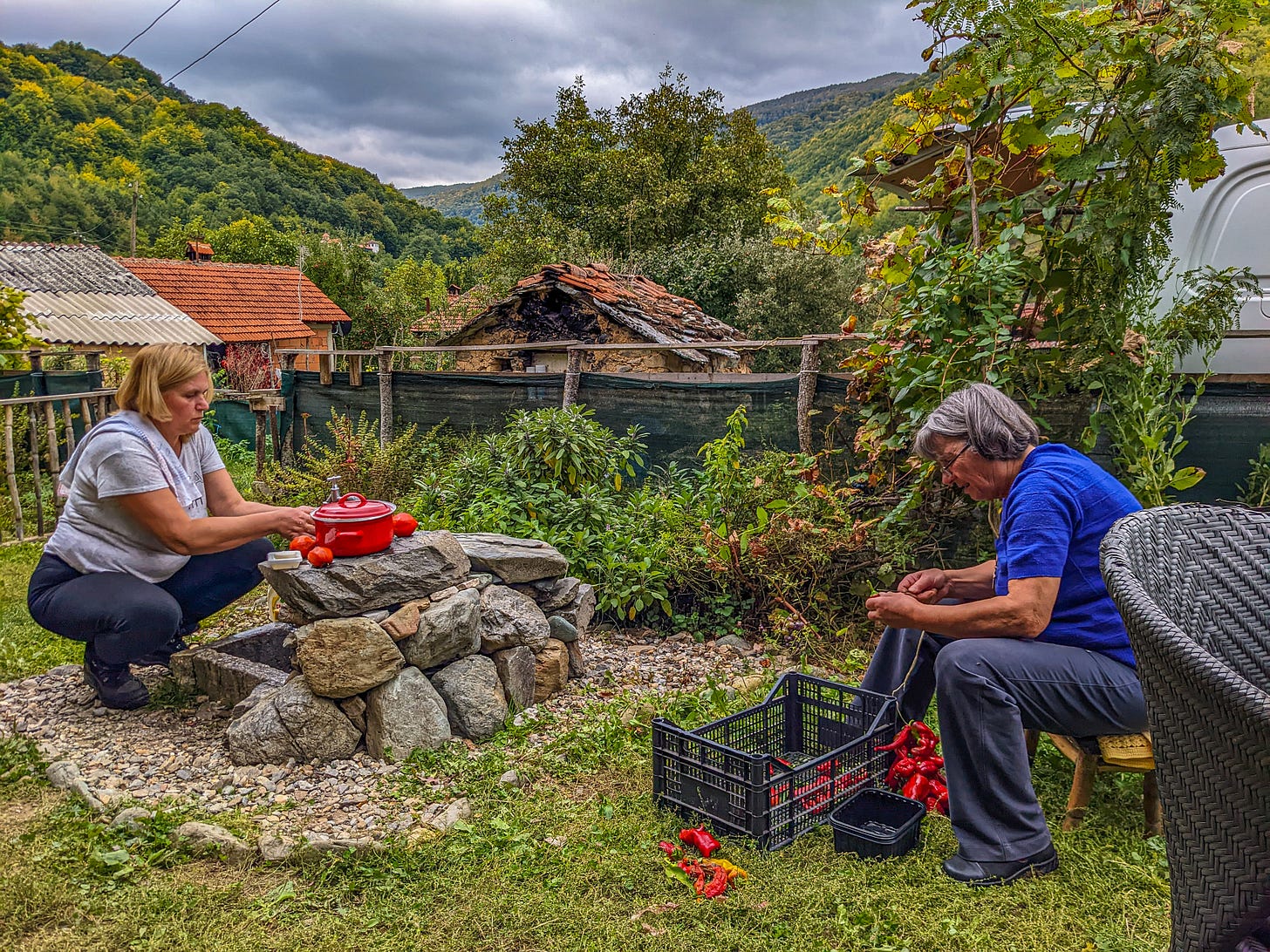
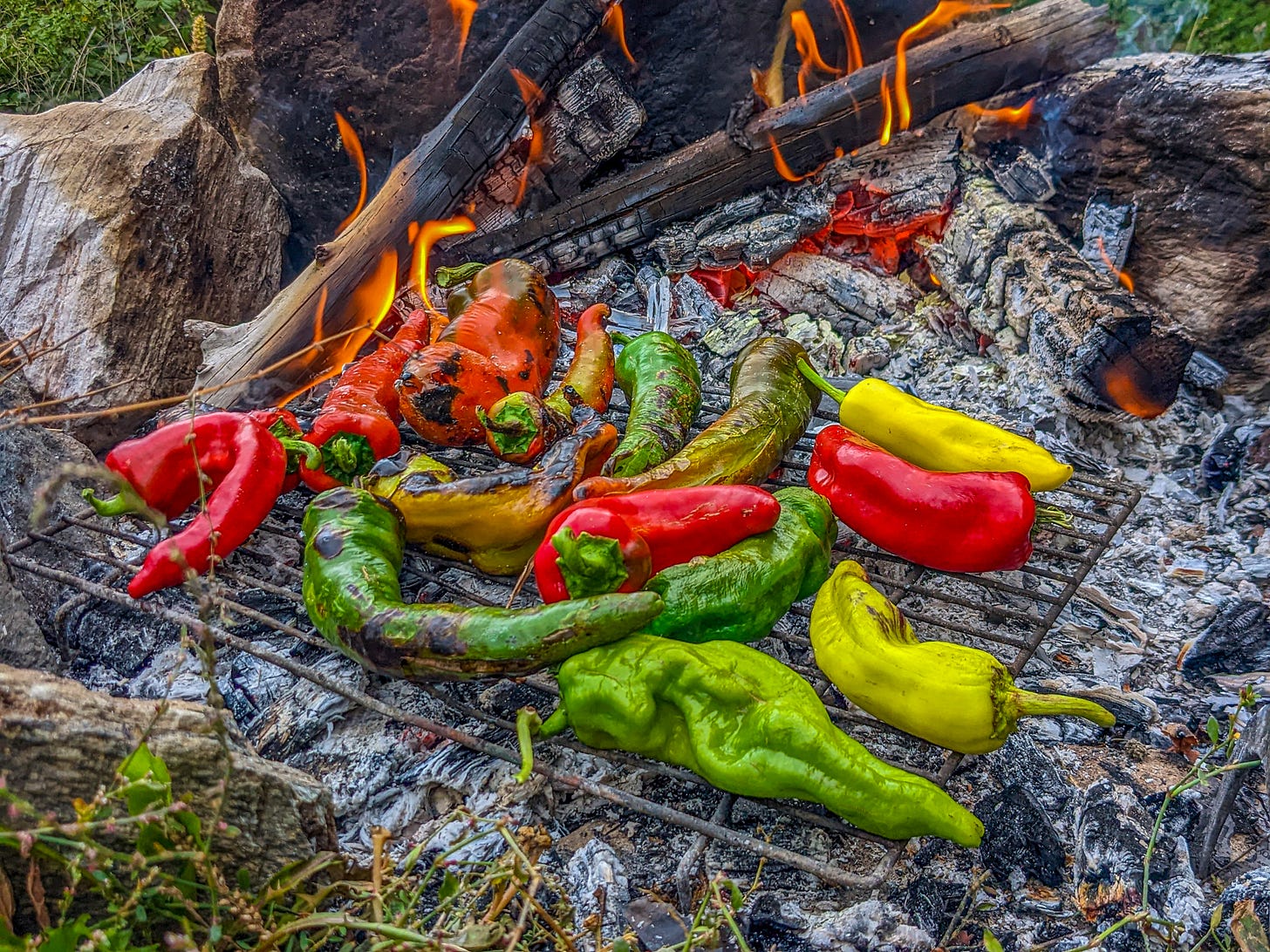
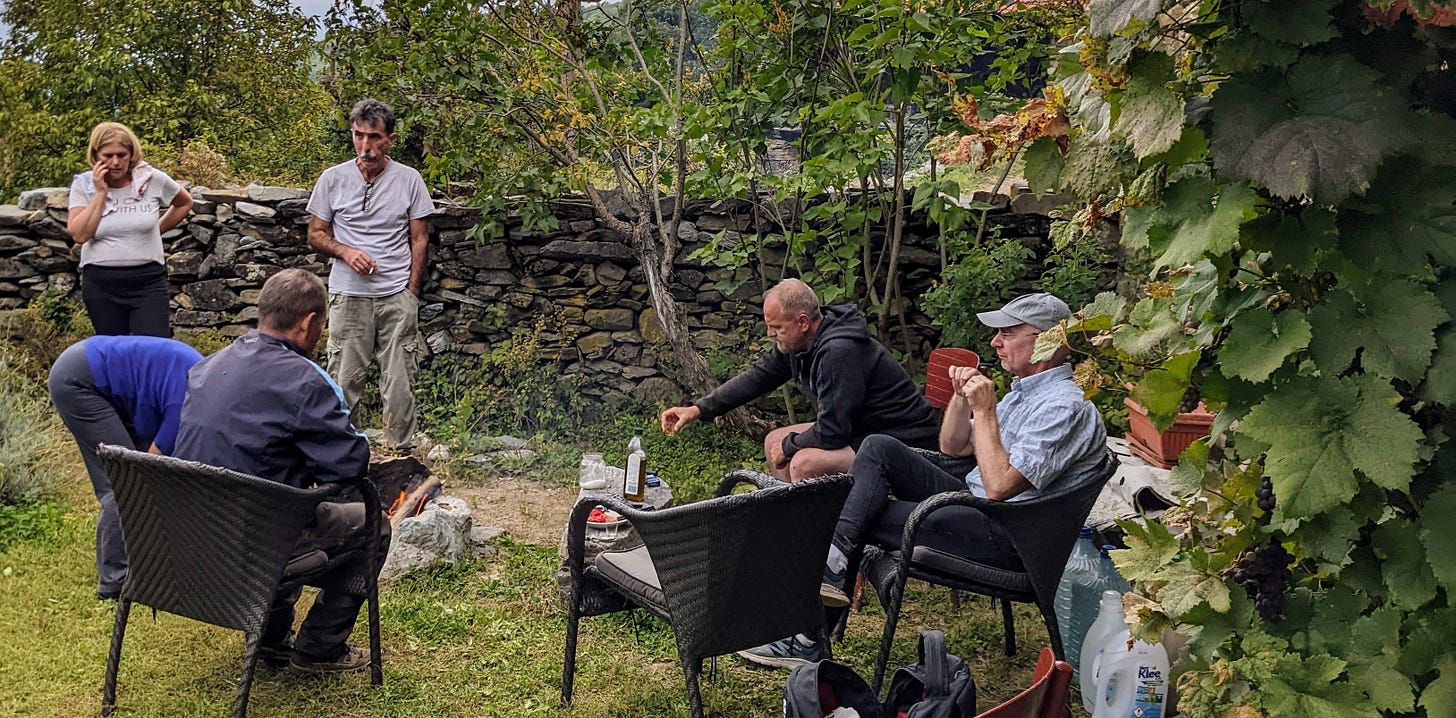

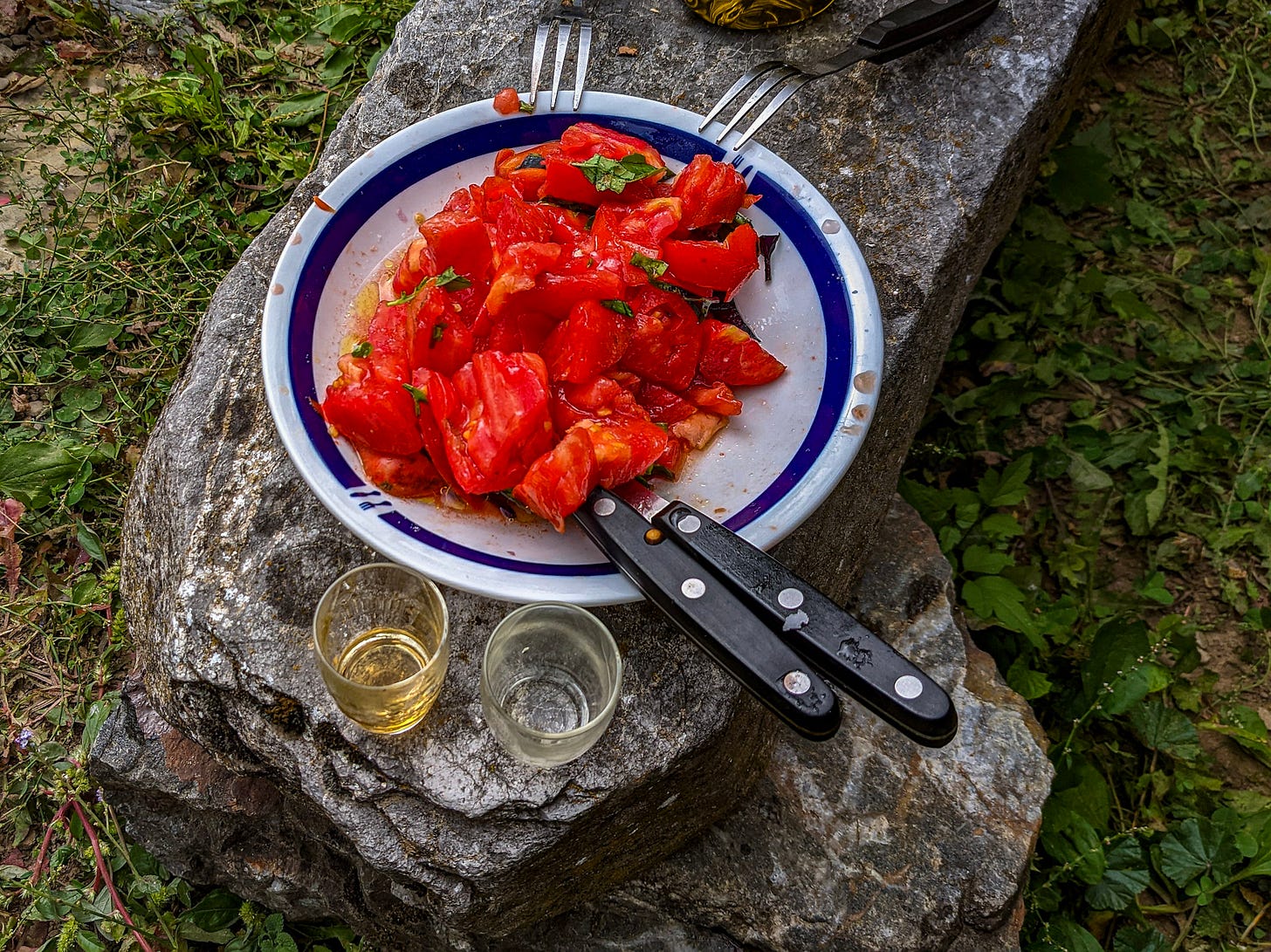
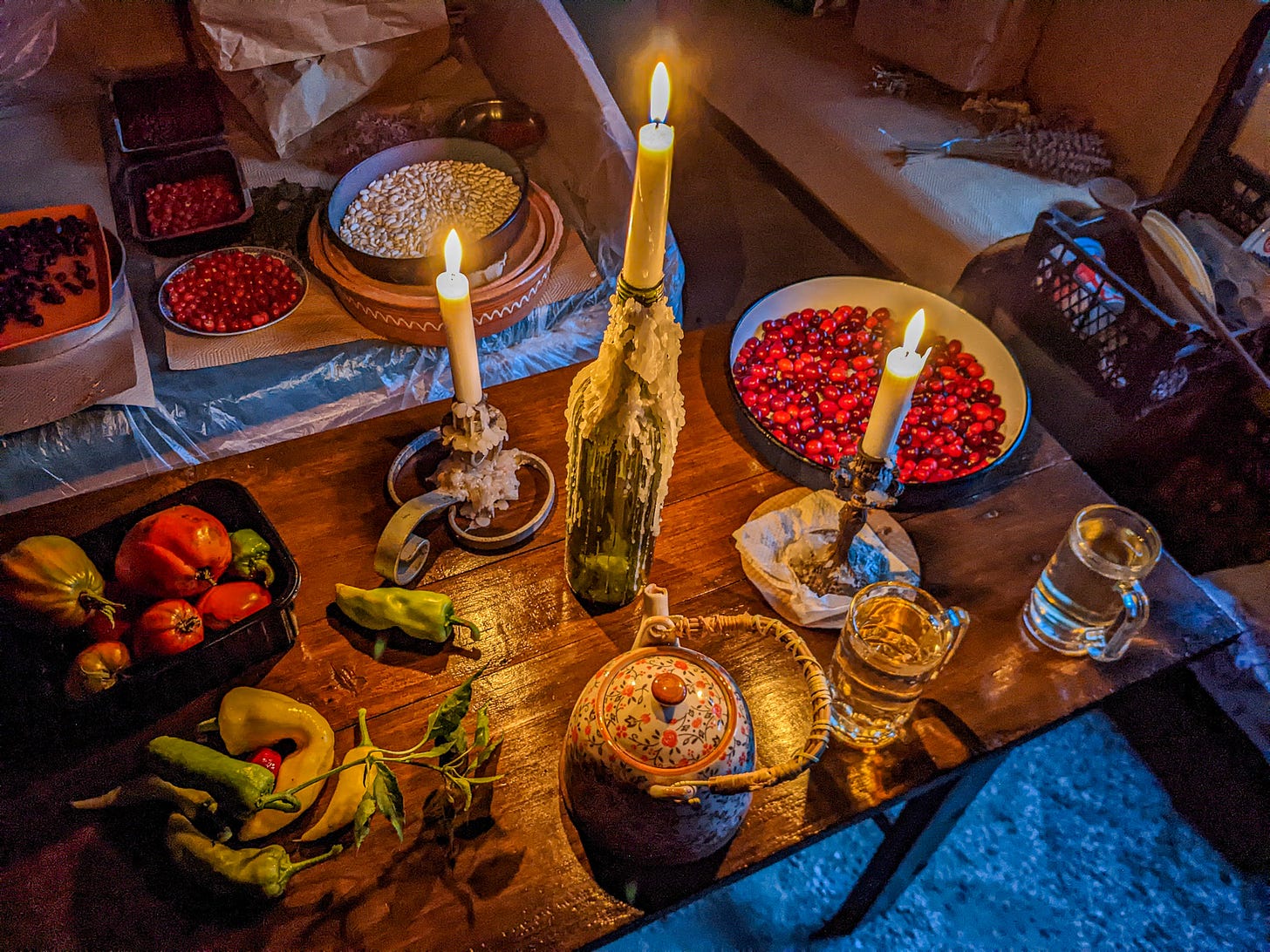
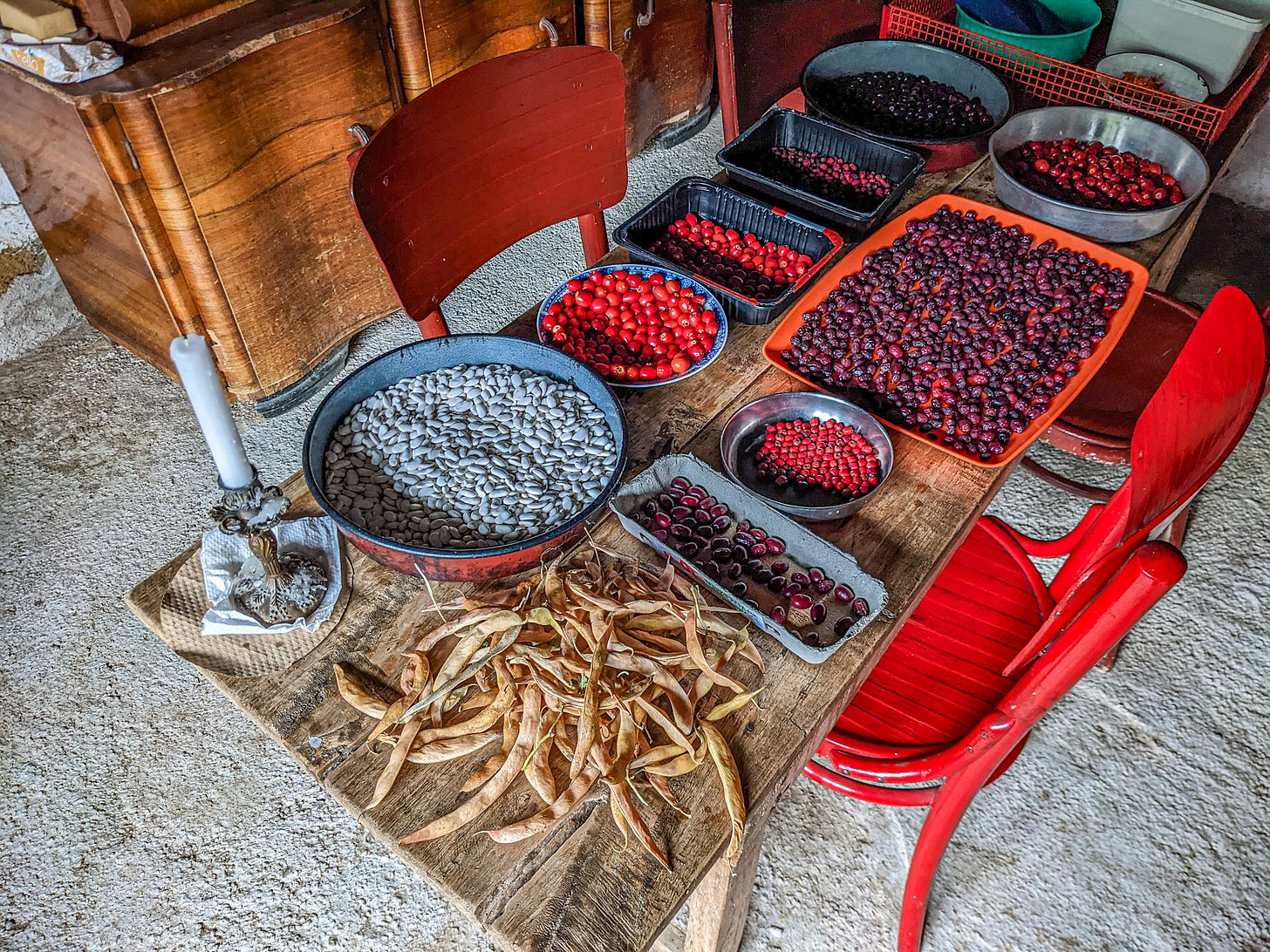


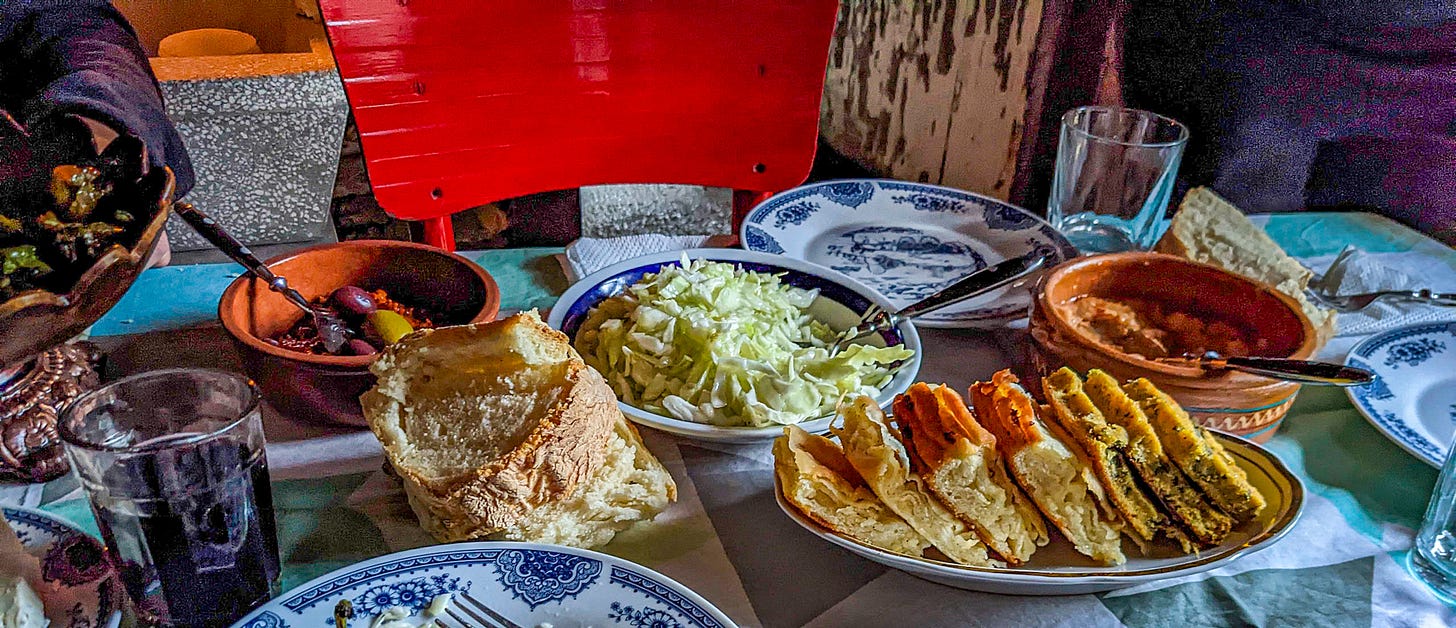
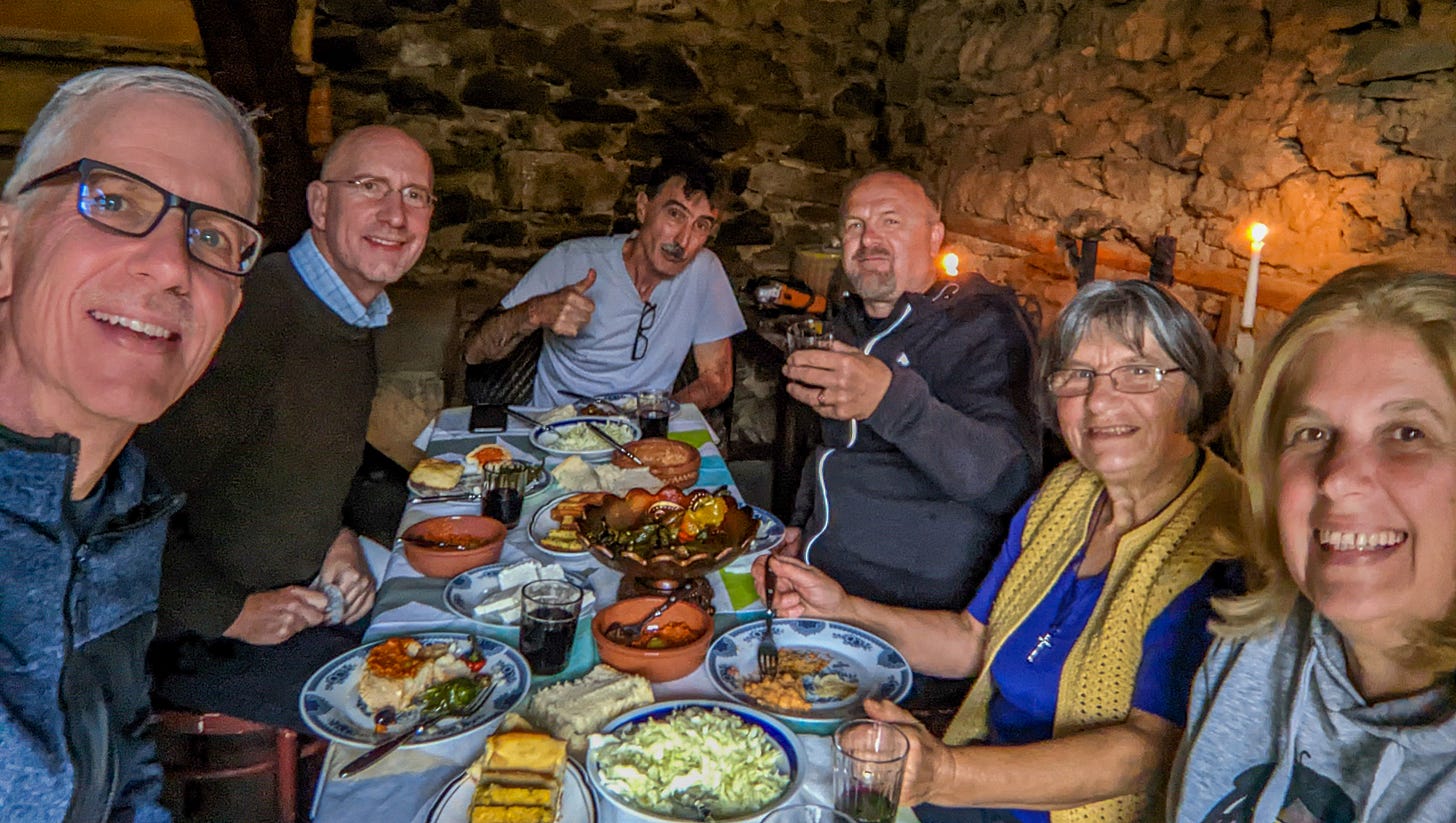
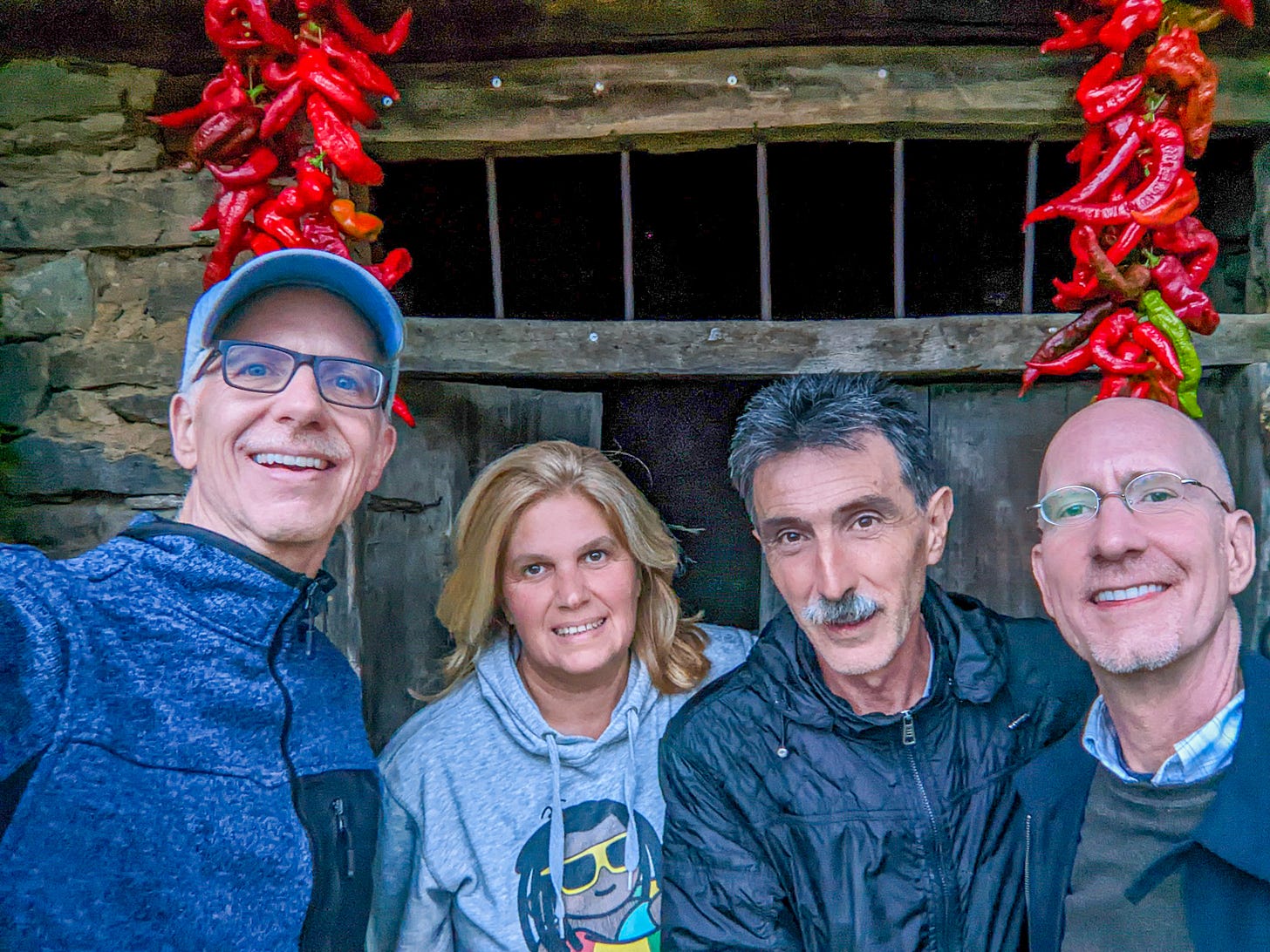
Gosh! Has it already been three whole years since we met in Macedonia?! My mouth is watering as I remember the smoky smell of those roasting peppers, and the resulting ajvar and cheese that was plentiful enough to be it's own feast! Fabulous food in far-flung fields forging fantastic friendships. Life doesn't get much sweeter than this!!! 💜💜💜
What a great story. Thanks for sharing!